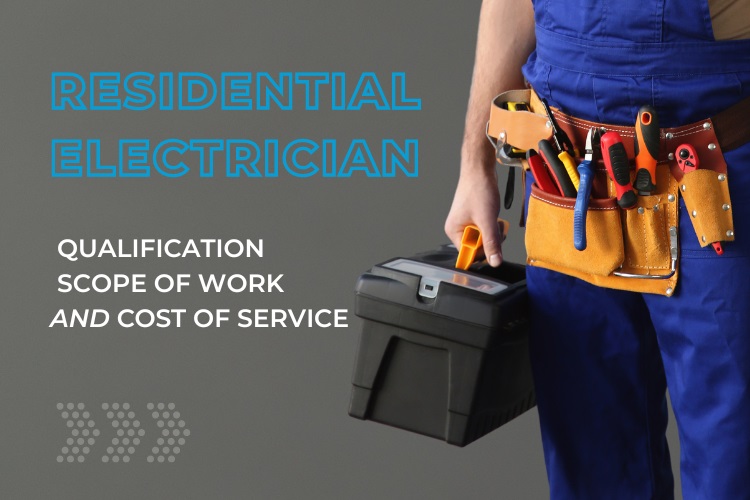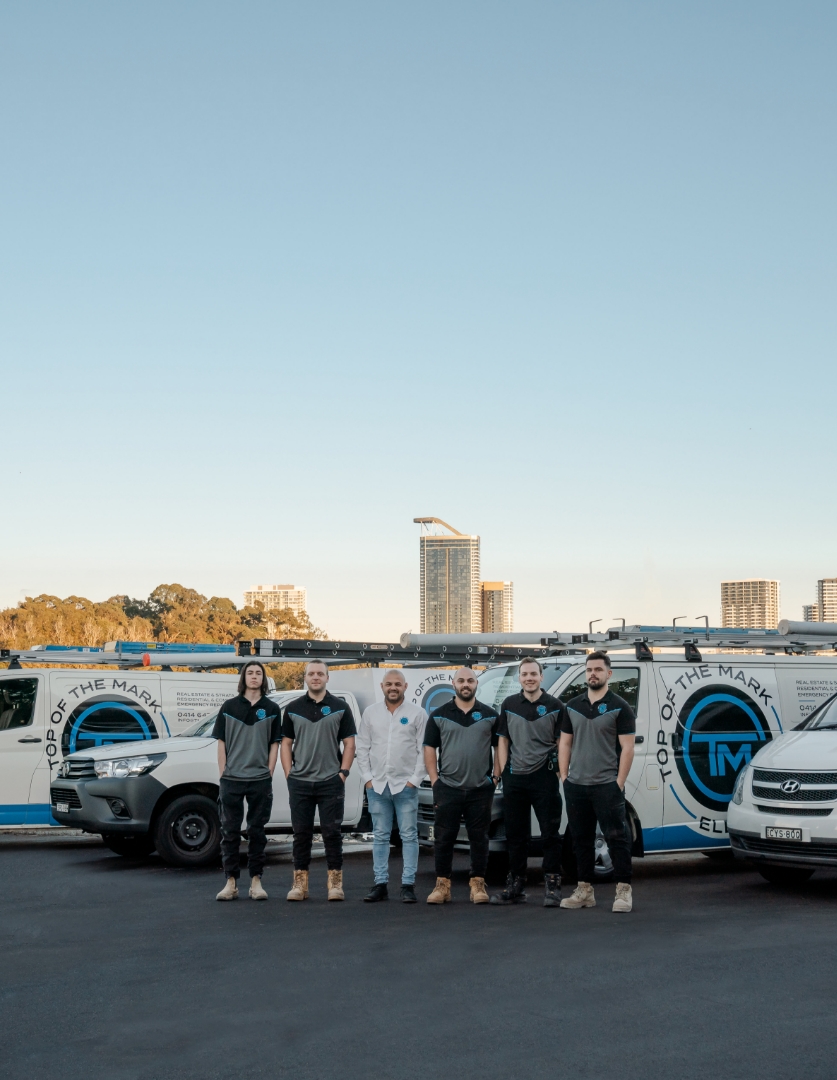Residential Electrician: Qualification, Scope of Work, and Cost of Service
By: Mark Mesiti

With so many DIY blogs and easy-to-follow YouTube videos nowadays, DIY home improvements have become quite common. However, certain jobs are too dangerous to handle on your own and simply necessitate professional intervention. Residential electrical work is one of them. Without the help of a qualified and experienced residential electrician, simple electrical installations and repairs could lead to fire, electrocution, and even death in the worst scenarios. If you need the services of a qualified residential electrician, here are some important things you need to know.
HOW TO SPOT A QUALIFIED RESIDENTIAL ELECTRICIAN
Finding a qualified residential electrician is not difficult, as long as you know what to look for. In New South Wales, NSW Fair Trading regulates electricians and there are two types of electrical licences to watch out for, the individual contractor licence and the company/partnership licence. More than the licences, you should also find out if your electrician holds a Qualified Supervisor Certificate for Electrical Work and the certification for Disconnection and Reconnection of Fixed Electrical Equipment. Individual contractor licences must be renewed every three years while a company/partnership licence expires after 1-3 years. The Certificate for disconnection and reconnection of fixed electrical equipment must be renewed every three years and is intended for contractors carrying out work outside of their usual job function. It is also important to note that if an apprentice does electrical work, it must be under the supervision of a licensed electrician who holds a Qualified Supervisor Certificate.
WHAT IS THE SCOPE OF WORK OF A RESIDENTIAL ELECTRICIAN?
1. WIRING INSTALLATION AND REPAIR
A residential electrician is up to date with local compliance regulations to ensure that your home wiring is safe. They can replace existing copper wires and install new wires for additional lighting, automation technologies, and home theatre systems.
2. UPGRADES AND INSTALLATIONS OF ELECTRICAL PANELS
Electrical panels may need to be installed or changed, especially if you are adding new appliances or equipment. Your electrician can ensure that your home is ready to handle increased electricity.
3. INSTALLATIONS OF NEW APPLIANCES
A residential electrician can help with installing new and modern appliances. This includes dishwashers, dryers, televisions, security systems, and home automation.
4. LIGHTING UPGRADES AND INSTALLATIONS
A skilled residential electrician can help install, repair, and upgrade new lighting. They can guarantee that your lights are properly wired and that circuits are improved if necessary.
HOW MUCH DOES IT COST TO HIRE A RESIDENTIAL ELECTRICIAN?
If you require the services of a residential electrician in Australia, expect to pay around $80 to $100 per hour. However, quoted rates may differ depending on the size and complexity of the job and your location. Areas closer to inner city areas will be more expensive and usually require a call-out fee (minimum of $50) to cover the electrician’s time and expense for the initial inspection of the problem.
TIPS FOR HIRING A RESIDENTIAL ELECTRICIAN
When looking for a qualified residential electrician, you need to look beyond their costs. Since there is a possibility of an accident or injury when dealing with electrical systems, you need to make sure you’re giving the job to someone who can guarantee safety and efficiency on the job.
1. IDENTIFY THE KIND OF ELECTRICAL WORK YOU WANT TO BE DONE
The first step in finding a qualified residential electrician is by identifying your needs. If your problem seems too complicated for your usual handyman to handle, you’ll probably require the help of a skilled specialist. From there, you can begin checking out nearby reputable electricians who can provide the level of service you want.
2. CHECK IF THE ELECTRICIAN HAS THE RIGHT CREDENTIALS
Once you’ve identified at least three reputable electricians in your area, make sure they have the appropriate credentials. A qualified electrician typically would have completed an Australian apprenticeship which takes four years to complete, as well as licencing assessments. However, keep in mind that not all residential electricians are the same. Some of them will have extra qualifications or experience in different areas of electrical work. So, ask about any additional qualifications and experience the contractor has.
3. READ REVIEWS AND ASK FOR REFERENCES
With so many untrustworthy people posing as qualified professionals nowadays, you can never be too careful. That’s why it’s also crucial to find out how your chosen electrician handled their previous assignments. You can do this by reading reviews on their website or other unbiased consumer pages. It’s also a good idea to ask friends and family who live in the same area as you. Their experiences, both good and bad, will set your expectations about the contractor and prepare you for the work ahead.
4. ASK ABOUT LIABILITY INSURANCE
Asking if your electrician has liability insurance is critical because of the dangers involved in their work. A tiny mistake could cause horrific consequences, such as a fire or injury, so you need to be protected. By hiring a company that has liability insurance, you won’t have to worry about spending additional money on additional repairs, losses, and injuries because they will take responsibility.
CALL TOP OF THE MARK ELECTRICAL TODAY!
If you are looking for a reliable and trustworthy residential electrician, look no further than Top of the Mark Electrical! Our qualified electricians are available 24/7 to provide quick, safe, and efficient service. Call us at 0414 647 661 for more information or a free quote.
TALK TO US
Request a Quote

